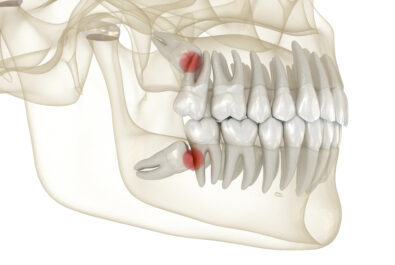Your dentist has located a patch of cells, a lesion, or a small bump that needs to be analyzed so an accurate diagnosis can be made and treatment plan developed. To achieve these goals, you will need an oral biopsy, a procedure during which your dentist or oral surgeon removes a small section of the abnormal area for analysis. Oral biopsies are generally associated with oral cancer. However, they are useful in diagnosing a wide range of oral pathologies (diseases of the mouth). Today, we’re answering a few frequently asked questions about this vital procedure.
Why Do I Need an Oral Biopsy?
If your dentist locates an area of abnormal cells and cannot provide an immediate, definitive diagnosis, he may order a biopsy. Many biopsies are ordered after abnormalities are located during a routine six-month checkup. However, in some cases, the patient has noticed the abnormality (for instance, a white patch or bump that persists for several weeks) and scheduled a non-routine appointment.
Are There Any Risks Associated with an Oral Biopsy?
In general, the risks associated with an oral tissue biopsy include post-procedural bleeding, infection, nerve damage, and inadvertent interaction with the sinuses. In the hands of an oral surgeon (or general dentist with training in oral and maxillofacial surgery), these risks should be minimal.
Will an Oral Biopsy Hurt?
No. Oral biopsies are almost always performed using a local anesthetic to numb the area and, if needed, supplemented with dental sedatives like nitrous oxide or oral conscious sedation. Some patients experience post-operative tenderness at the site and should avoid hot, spicy, or highly acidic foods and drinks for a few days following the procedure. Over-the-counter pain medication, like Tylenol, can help alleviate any discomfort.
How Long Do I Have to Wait for Results?
Your tissue sample will be sent to a lab for microscopic analysis. Once the analysis is performed, your dentist will call you back to the office for a follow-up appointment. Although exact times vary, a patient can expect to wait about two weeks for a follow-up. Once a diagnosis is made, dentist and patient will work closely to develop a decisive treatment plan.
About Shawn Hofkes, DDS
With advanced training in oral and maxillofacial surgery and oral pathology, Shawn Hofkes, DDS is qualified to perform gentle, conservative oral biopsies from our comfortable, state-of-the-art dentist office in Cerritos, CA. To schedule your appointment or consultation with Dr. Hofkes, contact us today. We proudly serve patients of all ages from Cerritos, Lakewood, Long Beach, Buena Park, and all surrounding communities.














